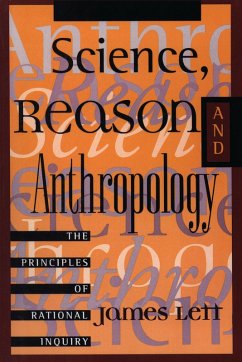For courses on anthropological theory, history, and methods... Science, Reason, and Anthropology explores the philosophical foundations of anthropology and identifies the fundamental principles of rational inquiry upon which all sound anthropological knowledge is based. As a field guide to critical thinking, with examples throughout, it is devoted to a thorough explication and analysis of the nature of reason and the practice of anthropological inquiry. Chapter one reviews the historical context of the contemporary debate between scientific and humanistic perspectives in anthropology, highlighting essential differences between the two approaches. Chapter two examines the nature of knowledge and explains the essential elements of epistemological analysis. Chapter three describes the basic features of the scientific method; it defines science as an objective, logical, and systematic approach to propositional knowledge, and explains each feature in detail. Chapter four applies the fundamental principles of critical thinking to an analysis of contemporary anthropological theory. Chapter five suggests a reconciliation between the scientific and humanistic approaches, arguing that the essential elements of sound reasoning are common to both perspectives. Science, Reason, and Anthropology argues forcefully for the preeminent value of the scientific approach in anthropology, but it does so while recognizing the inherent worth and innate appeal of the humanistic perspective. Even those who are not predisposed to share the author's conclusions will appreciate the clear and forthright manner with which he presents his arguments.
Bitte wählen Sie Ihr Anliegen aus.
Rechnungen
Retourenschein anfordern
Bestellstatus
Storno









